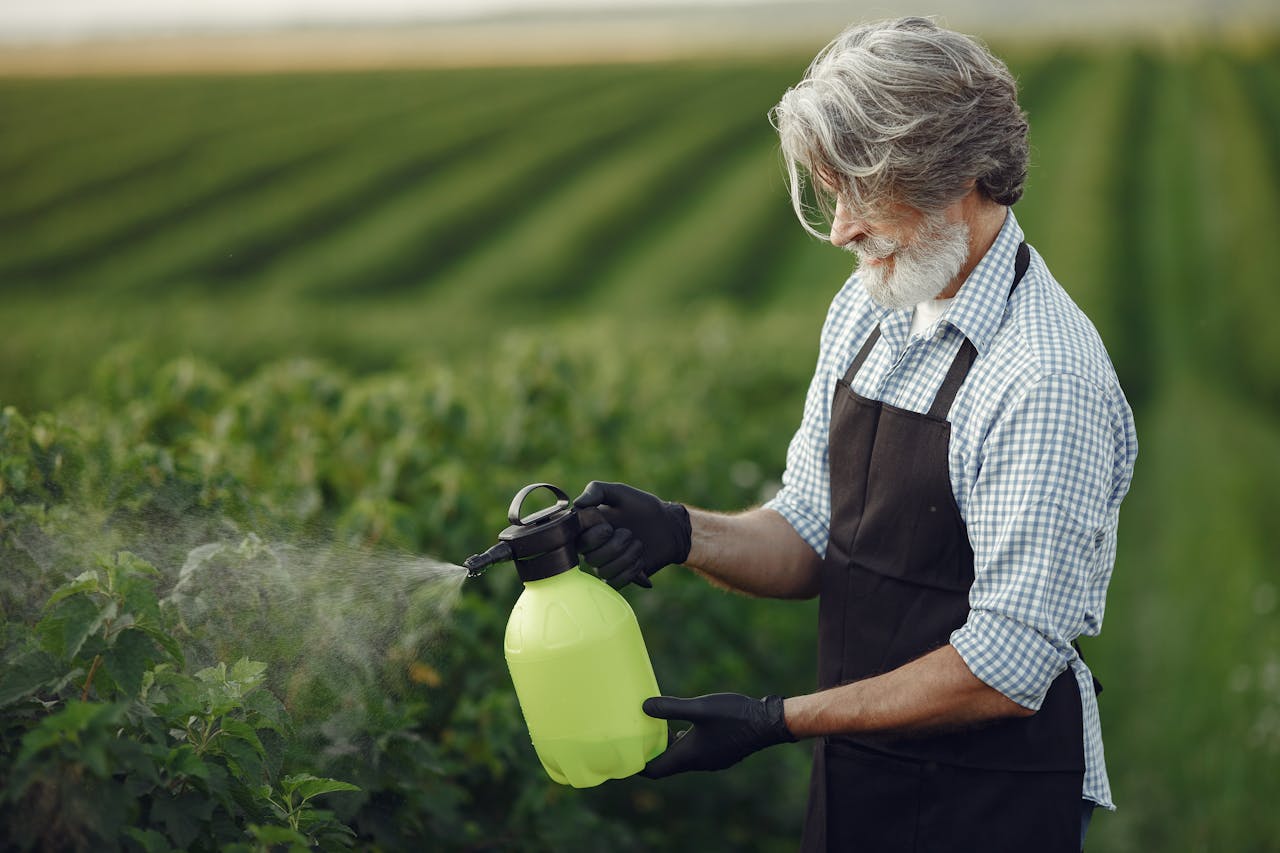
Image Source: Pexels
Not everything on your local garden center’s shelf is safe, at least, not by global standards. Some lawn and garden chemicals still sold in the U.S. have been banned in other countries due to serious health and environmental risks. Before you spray, here are 10 products that might make you think twice. These bans aren’t just red tape; they’re based on studies linking certain ingredients to cancer, reproductive harm, and ecological damage. Just because it’s available doesn’t mean it’s safe for your family, pets, or pollinators.
1. Glyphosate (Roundup)
Roundup is banned in Germany, Mexico, and Austria. It’s linked to cancer and harmful to pollinators, glyphosate is widely restricted overseas, yet still commonly used in American yards. Vinegar based herbicides are a much safer alternative to Roundup. You can safely use products like Green Gobbler or Natural Armor.
2. 2,4-D
2,4-D is banned in Norway, Denmark, and Sweden. Although it’s a common weed killer, it has been tied to hormone disruption and potential carcinogenic effects. However, 2,4-D is still approved in the U.S. Instead of 2,4-D, try corn gluten meal or iron-based herbicides (FeHEDTA).
3. Atrazine
Atrazine is banned in the European Union. This herbicide contaminates groundwater and is suspected to disrupt hormones. It has even caused reproductive issues in amphibians. Instead of Atrazine, you can try natural post-emergent sprays. These usually include ingredients like vinegar, clove oil, citrus oil, or soap-based formulas.
4. Paraquat
Paraquat is banned in the EU, China, and Brazil. It is highly toxic and potentially fatal with even small exposure. Despite this, Paraquat is still legal in the U.S. for agricultural use. Have you tried flame weeding? This can be an alternative to using Paraquat.
5. Chlorpyrifos
Once common in insecticides, chlorpyrifos is known to harm brain development in children. Chlorpyrifos is banned in the EU, Canada, and Australia. It’s finally banned in U.S. food use but still lingers in other products. Neem oil is a safer insecticide than Chlorpyrifos.
6. Neonicotinoids
These insecticides are deadly to bees and other pollinators. This has been banned in the EU and some parts of Canada. Some U.S. states have moved to restrict them, but national bans are lacking. You can try insecticidal soap instead of Neonicotinoids.
7. Pentachlorophenol (PCP)
Used for wood preservation, PCP is a known carcinogen and persistent environmental toxin. It’s still allowed in some industrial garden uses. But it has been banned in the EU. Boron-based or copper-based wood preservatives are healthier choices.
8. Maneb
Maneb is banned in the EU. It is a fungicide linked to thyroid issues and possible neurological harm. The U.S. has phased out some uses, but not all. You can try copper-based fungicides instead.
9. Carbaryl (Sevin)
Carbaryl is an insecticide that affects the nervous system of humans and animals. It is still sold widely in American garden products. Countries that have banned Sevin include the UK, Denmark, and Sweden. Spinosad is an alternative to try. It’s a natural bacterial toxin that targets the insect nervous systems.
10. Diuron
Used to kill weeds and algae, Diuron is toxic to aquatic life and a suspected carcinogen. It is still legal in U.S. herbicides. You won’t find Diuron being used in the EU. Organic herbicides with fatty acids are a better choice.
Harmful Chemicals to Avoid
Just because it’s on the shelf doesn’t mean it’s safe. Many of these chemicals are banned abroad for good reason. Read labels, do your research, and consider safer, organic alternatives to keep your garden and your family healthy.
Read More
6 Times a Backyard Project Ended in a Legal Dispute
8 Lawn Additions That Could Attract Burglars

Teri Monroe started her career in communications working for local government and nonprofits. Today, she is a freelance finance and lifestyle writer and small business owner. In her spare time, she loves golfing with her husband, taking her dog Milo on long walks, and playing pickleball with friends.
Leave a Reply